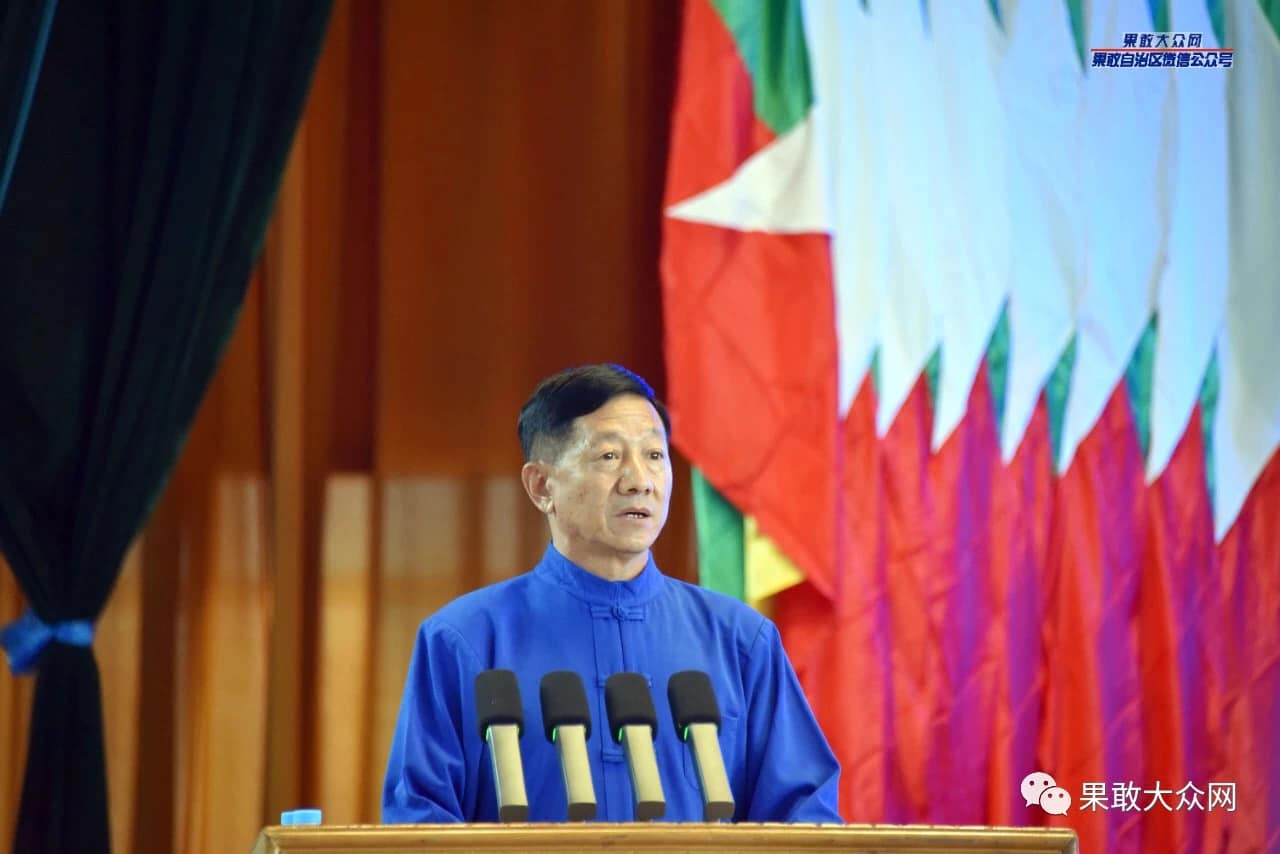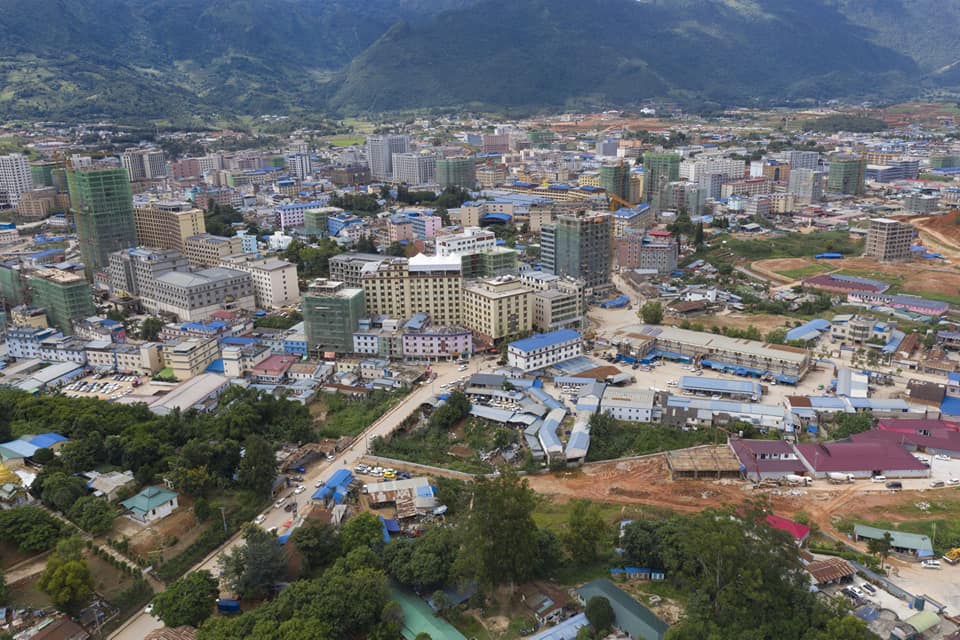While fending off anti-junta forces’ advance towards the Kokang capital of Laukkai, the junta is under mounting pressure from China to take decisive action against criminal organisations running online scam networks from the autonomous region
Myanmar Now November 17, 2023

The military council announced on Wednesday that a high-ranking army officer would replace the incumbent chair of the leading body of the Kokang Self-Administered Zone (SAZ) in northern Shan State.
According to the announcement, the military council had dismissed the governing body’s chairman Myint Swe—who previously served in Myanmar’s lower chamber of parliament as a member of the military proxy Union Solidarity and Development Party (USDP)—temporarily replacing him with Brigadier General Tun Tun Myint.
Before he was chosen to head the Kokang SAZ’s government, Tun Tun Myint was in command of all battalions operating in northern Shan State in his capacity as the head of the army’s northeastern regional command, which is headquartered in Lashio.
The Kokang area, which comprises northern Shan State’s Konkyan and Laukkai townships, is a designated region for the Chinese-speaking Kokang ethnic community. It has been governed as an autonomous region since the 2010 general elections as stipulated by the 2008 Constitution of Myanmar.
In practice the area has been governed mostly by Kokang members of the military-backed USDP.

Growing lawlessness in the Kokang SAZ
The Chinese government has identified Laukkai, the capital of the Kokang SAZ, as a nerve centre for wide-reaching, illegal online gambling and predatory scam operations, generating pressure on Kokang authorities to crack down.
Chinese officials also accused former USDP legislators Ming Xuechang and Maung Maung of high-level involvement in the criminal organisations running the online scams. Maung Maung was arrested in September in connection with these allegations.
Increasingly impatient with the lawlessness on the China-Myanmar border, the Chinese government issued arrest warrants this week for Ming Xuechang and three of his family members: his son Ming Guoping, daughter Ming Julan, and grandchild Ming Zhenzhen.
The Myanmar military council issued its own arrest warrants for the four accused individuals on Wednesday.
When police came to arrest the four members of the family on Thursday in the Kokang SAZ, Ming Xuechang reportedly killed himself by gunshot, while his son and granddaughter were reportedly turned over to Chinese authorities.
Reports differ as to the whereabouts and status of Ming Xuechang’s daughter.
Ming Xuechang is known to have held Chinese citizenship. Having multiple citizenships in secret is not an uncommon practice among the political and financial elites in Myanmar despite the country disallowing dual citizenship.
The junta also issued an arrest warrant on Thursday for Bai Soucheng, another USDP lawmaker in the Shan State assembly who served as chair of the Kokang SAZ’s leading body between 2011 and 2015. He was also a commander in the military-backed Kokang Border Guard Force and is alleged to have been involved in narcotics trafficking and other crimes.
Operation 1027 moves towards the Kokang capital
Amid its efforts to crack down on expanding criminal networks in the Kokang area, the Myanmar junta is also struggling to contain the Operation 1027 offensive campaign launched in northern Shan State in October by a tripartite alliance of anti-junta ethnic armed organisations.
One of the members of the alliance, the Myanmar National Democratic Alliance Army, is an ethnically Kokang armed group, and has announced its intent to initiate an assault on Laukkai in the coming days.
After losing territory to advancing anti-junta forces in northern Shan State, the military’s control is now largely confined to Laukkai within the Kokang SAZ.
Due to threats to his safety, the military council helped Myint Swe and his family relocate to the junta’s national administrative capital in Naypyitaw, according to local sources, and has provided similar help to other officials and wealthy people in escaping the Kokang SAZ.
As of Wednesday, the army battalions under the northeastern regional command are still stationed in Laukkai, along with junta-trained militias and pro-junta Border Guard Forces.
Last Sunday 127 junta soldiers stationed in Laukkai, including a major in command of a regiment, surrendered to the MNDAA, accompanied by their families.
